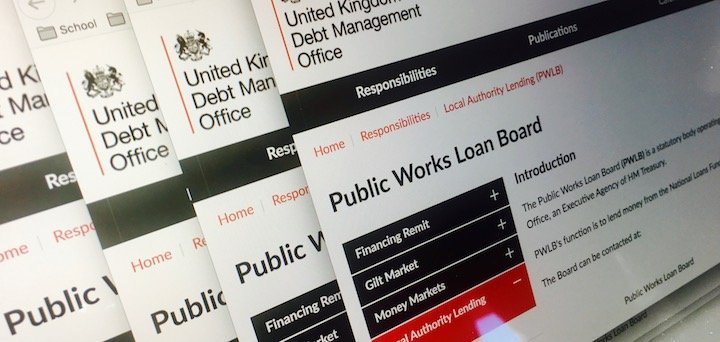Treasury-imposed barriers to councils repaying historic high-interest loans from the Public Works Loan Board should be removed, a financial analyst has claimed.
In an article on his Risky Finance website, Nick Dunbar criticised the high penalties faced by local authorities who want to refinance borrowing taken out before the financial crisis at rates of 5% or above.
Risky Finance estimates that the current early repayment cost to councils on their PWLB loans is around £29bn, on top of total borrowing of £62bn.
Dunbar said that early repayment penalties introduced in 2007 hurt the poorest authorities — those that borrowed the most before the crash — and fuelled a recent trend for better-off councils to borrow at cheap rates for commercial property investment.
He told Room151: “Our analysis shows that councils whose repayment penalties are low — reflecting the fact they hadn’t borrowed much before the financial crisis — have been more likely to take out new PWLB loans.
“They include authorities such as Spelthorne, Runnymede and Woking; all wealthy areas that have used cheap government funding to make speculative investments in commercial property.”
Dunbar said the government should stop treating PWLB loans to local authorities in the same way as loans in the private sector work, and should scrap repayment penalties.
“After all,” he said, “if taxpayers’ money is being shunted from central to local government and back again, why is a market rate necessary?
“Isn’t the point of central government that it can insulate small players, such as councils, from forces such as interest rate shifts, which they can’t control?”
Christian Wall, director at local authority financial adviser PFM, backed Dunbar’s argument.
He said: “The government should lift the penalty regime, at least for those councils who took loans before 2007. Given local authorities are under severe pressure, it is a slight irony that the government insists they can’t refinance their loans to save them money.”
However, Mark Pickering, director at treasury adviser Arlingclose, said that the financial penalties for repayment had been introduced for good reason, and could see the argument for their retention.
He said: “There are two issues here: the movement in interest rates over the period and the premium for early repayment.
“In terms of interest rates, councils borrowed longer term at times when rates were higher than now because they put a value on certainty. They had opportunities from the first anniversary of taking those loans to refinance.”
Pickering said the repayment premium was originally introduced to head off the possibility of councils settling loans and reborrowing if they knew rates would fall.
“That created a risk that the Debt Management Office was losing money,” he said. “In order to protect themselves, they lowered the discount margin.
“Don’t get me wrong, I would love it if there was a mechanism where authorities could refinance some of these higher rate loans without penalty but the money central government lost would have to be borne by the general taxpayer.”












